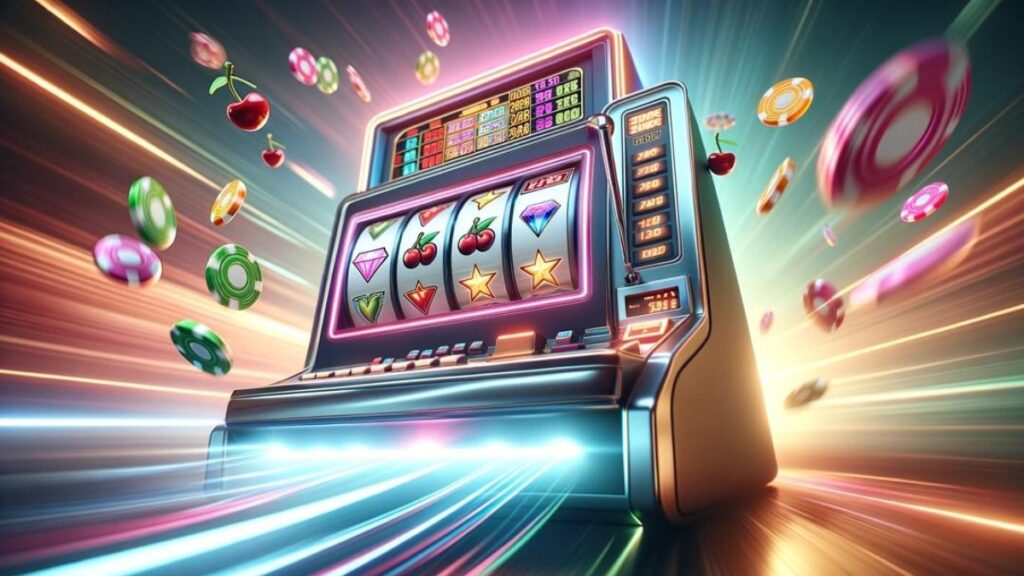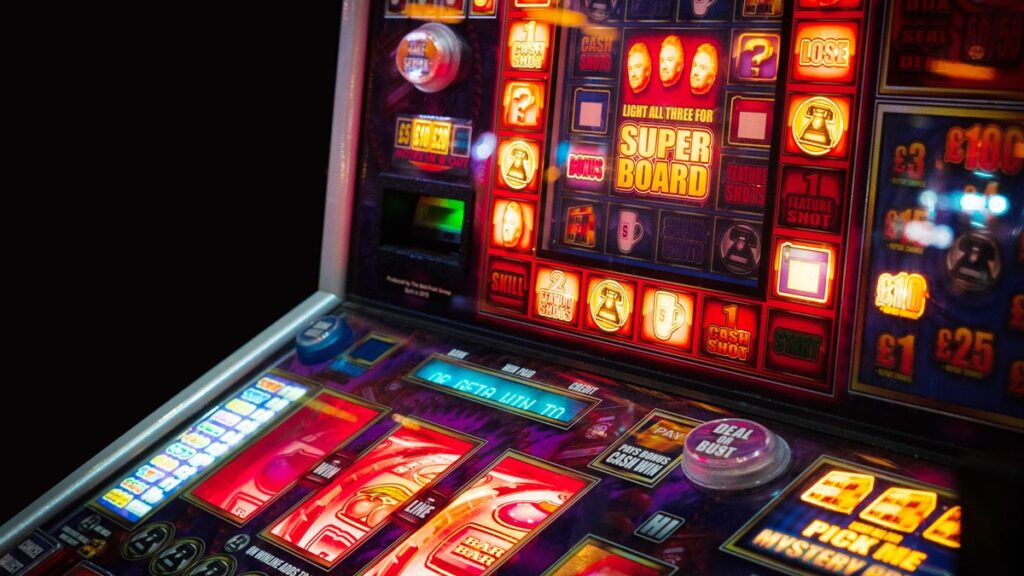
Slot games have long been a favourite among online gaming enthusiasts, but as technology advances, the future of slots is heading in a new and exciting direction. As we look towards 2024, several key trends are expected to shape the slots at nongamstopcasinos.net.
From artificial intelligence (AI) innovations to blockchain integration, slot games are on the verge of a technological transformation. Here’s what players and operators can expect from slot games in the coming year.
Decentralisation in slot games
Decentralisation is playing a larger role in the world of slot games. The concept, which is powered by blockchain technology, offers more transparency and control to users. With decentralisation, players can expect a more secure and personalised experience, as games are developed with transparency in mind. This technology provides users with more insights into game mechanics, ensuring fairness and empowering them with greater autonomy.
Advantages of decentralisation in slots
- Player control: Users gain more control over their gaming experience.
- Increased security: Blockchain helps in safeguarding transactions and data.
- Transparency: Blockchain ensures fair play by providing clear game mechanics and odds.
The role of AI in slot development
Artificial intelligence is already making waves in many industries, and the gaming world is no exception. AI is transforming how slot games are designed and played. AI-powered slot games offer a more personalised experience by adapting gameplay to individual player preferences. Additionally, AI enhances transparency in the gaming process by ensuring fairness and identifying any suspicious activity.
Key AI applications in slots
| AI Feature | Impact on Slots |
| Personalisation | Adapts gameplay based on user behaviour and preferences |
| Fairness and security | Detects suspicious activity and ensures fair play |
| Game development | Enhances the design of slot games for better engagement |
| Customer support | AI-driven chatbots provide quick responses and help |
AI’s ability to adapt gameplay based on player data is revolutionising the slot experience. Players enjoy games tailored to their preferences, while operators benefit from increased engagement and retention.
Transparency as a top priority
Transparency is becoming increasingly important in the casino industry. Players want to know how games work, what their chances of winning are, and whether the games are fair. AI and blockchain are playing a critical role in making this possible. With these technologies, players can expect clearer explanations of game mechanics, better odds visibility, and a more trustworthy gaming environment.
NFTs and virtual assets in slot games
Non-fungible tokens (NFTs) have gained popularity in recent years, and their influence is expanding into the world of slot games. NFTs are unique digital assets that players can own, trade, and use within slot games. These assets enhance the gaming experience by allowing players to personalise their gameplay and collect rare in-game items.
Benefits of NFTs in slots
- Unique digital ownership: Players can own exclusive in-game items.
- Trading opportunities: NFTs can be bought, sold, or traded with other players.
- Personalised gaming: Players can customise their experience with virtual assets.
The integration of NFTs and blockchain technology offers exciting opportunities for players to engage with slot games in new and innovative ways. This trend is expected to grow as more players seek ownership and personalisation in their gaming experiences.
Virtual reality and slot games
Virtual reality (VR) is transforming the online casino landscape, and slot games are part of this evolution. VR technology allows players to immerse themselves in virtual casino environments, offering a more interactive and engaging experience. As VR becomes more accessible, it is likely to play a significant role in the future of slot games.
VR in slots: What to expect
- Immersive gaming: Players can step into virtual casinos and experience slot games in 3D.
- Real-time interaction: VR enables players to interact with others in real-time.
- Enhanced realism: The virtual environments replicate the feeling of being in a physical casino.
Virtual casinos are on the rise, and as VR technology continues to improve, more players will be drawn to these immersive experiences.
Ownership and trade in slot games

With blockchain technology, ownership and trade within slot games have become more viable. Players can now own in-game assets, such as rare items or currency, which can be traded or sold. This gives players a sense of value and investment in the games they play.
Ownership opportunities in slots
- Virtual assets: Players can own rare collectables and game achievements.
- Cross-platform use: Assets can be used across different games and platforms.
- Monetisation: Players can sell or trade their assets, adding a financial element to gameplay.
Blockchain technology enhances security and transparency, allowing players to verify the authenticity of the assets they own. This has led to a new level of engagement and investment in slot games.
Zero-knowledge proofs and enhanced security
Security is a critical concern in online gaming, and advancements in encryption techniques are helping to address these issues. Zero-knowledge proofs allow for the verification of transactions without revealing sensitive information, ensuring that players’ data remains secure. This encryption method is gaining traction in the casino industry, providing players with confidence that their information is protected.
Aligning with Web 3.0 principles
Web 3.0 focuses on decentralisation and user control, and these principles are shaping the future of slot games. With Web 3.0, players can expect greater control over their gaming experience, more transparency, and enhanced personalisation. Blockchain, AI, and VR are all converging to create a more immersive and interactive gaming environment.
Key trends aligned with Web 3.0
- Blockchain integration: Ensures transparency and secure ownership of virtual assets.
- AI personalisation: Tailor’s gameplay to the individual player’s preferences.
- Cross-platform compatibility: Players can enjoy their slot games across multiple devices.
- Cryptocurrency payments: Seamless transactions using digital currencies.
As these technologies continue to evolve, Web 3.0 is expected to play a significant role in the future of slot games.
Strategic development through AI
The future of slot games lies in strategic development through AI. AI-powered slot machines are reshaping the gaming experience by offering progressive jackpots, personalised rewards, and tailored gameplay features. AI also plays a crucial role in optimising game design and enhancing player engagement.
AI-driven innovations in slots
- Progressive jackpots: AI helps in managing and distributing jackpots more effectively.
- Personalised rewards: Players receive bonuses based on their gaming history and preferences.
- Game design: AI improves the user experience by creating more engaging game mechanics.
AI is not just about improving the gameplay itself but also about creating an ecosystem where players feel more engaged and valued.
FAQ
How will AI impact the future of slot games?
AI will enhance personalisation, fairness, and engagement in slot games. It will adapt gameplay to individual preferences, ensure transparency, and optimise game design.
What is decentralisation in slot games?
Decentralisation involves using blockchain technology to give players more control, transparency, and security in their gaming experience, ensuring fairness and personalised gameplay.
How are NFTs used in slot games?
NFTs allow players to own unique digital assets that can be traded or used in games, offering personalisation and exclusivity within the gaming experience.
What role does virtual reality play in slot games?
Virtual reality creates immersive virtual casino environments, allowing players to experience slot games in a more interactive and realistic setting.
How does blockchain enhance security in slot games?
Blockchain ensures secure transactions, transparency, and verifiable ownership of virtual assets, providing a safer gaming experience for players.
